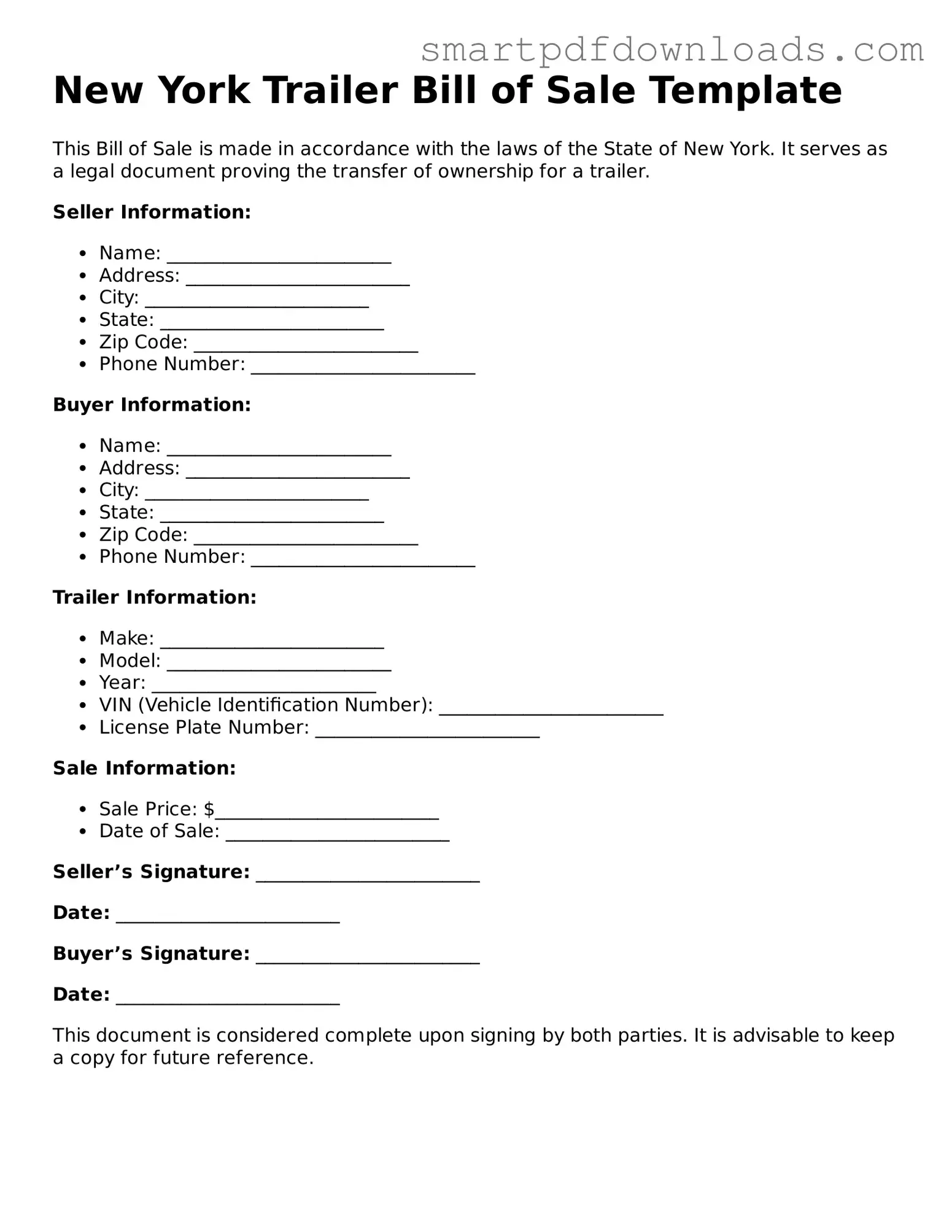Legal Trailer Bill of Sale Form for the State of New York
The New York Trailer Bill of Sale form is a legal document that facilitates the transfer of ownership for trailers within the state of New York. This form serves as proof of sale and provides essential details about the trailer and the parties involved in the transaction. Understanding its components is crucial for both buyers and sellers to ensure a smooth transfer process.
Edit Trailer Bill of Sale Online

Legal Trailer Bill of Sale Form for the State of New York
Edit Trailer Bill of Sale Online

Edit Trailer Bill of Sale Online
or
⇓ PDF File
Finish the form and move on
Edit Trailer Bill of Sale online fast, without printing.